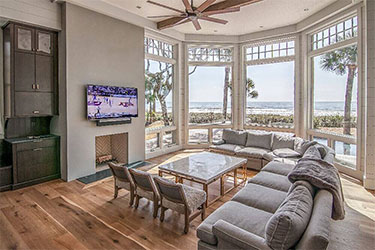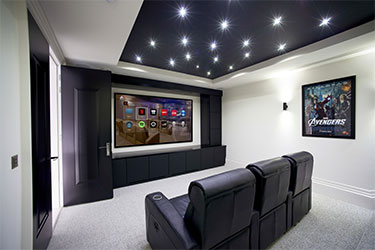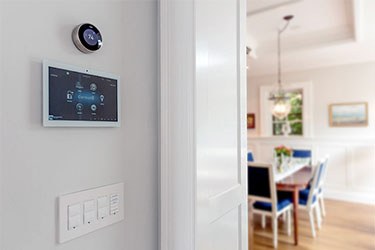Highlighting Your Home’s Beauty
Regarding home lighting, there’s a stark difference between simply meeting building codes and creating an inviting, functional space tailored to your needs. Many builders install standard lighting that evenly illuminates a room. Still, this approach often highlights the carpet rather than enhances the ambiance. This standard setup may be code-compliant, but it overlooks the importance of human-centric lighting that truly complements how you use the space.
The key to exceptional home lighting is thoughtful design beyond evenly spaced fixtures. By employing higher-quality luminaires and layering different types of light, we can create a beautiful and functional room. This approach involves placing lights where they are most needed—such as focused lighting for artwork, task lighting for reading or working, and accent lighting to highlight architectural details—while ensuring glare is minimized and the overall ambiance is inviting.
Moreover, lighting should be designed with a human touch. This means considering how natural light interacts with indoor spaces throughout the day, using dimmable fixtures, and selecting color temperatures that enhance the room’s purpose. By planning ahead, particularly during the early stages of a home’s design, homeowners can achieve a lighting scheme that adds comfort, functionality, and aesthetic appeal while seamlessly integrating into their daily lives. This comprehensive approach to lighting ensures that every corner of the home is illuminated and appreciated, offering a perfect blend of form and function.
What is Quality Lighting?
A quality home lighting system encompasses crucial features like a high Color Rendering Index (CRI) for accurate color representation, precise 1% dimming capabilities, and the expertise of professional lighting design, ensuring optimal aesthetics and functionality for luxury homeowners.
The Process, Who Does What
In the home construction lighting process, essential parties include architects, lighting designers, electricians, and control integrators. The absence of any may result in the loss of quality and key features in the lighting design, underscoring the need for a collaborative approach.
LED Lighting Terms & Concepts
Understanding the intricacies of modern LED fixtures, which differ from older lighting technologies, can be difficult. By understanding a few key concepts, homeowners can express their preferences effectively, ensuring their needs are met and a successful home lighting project.












